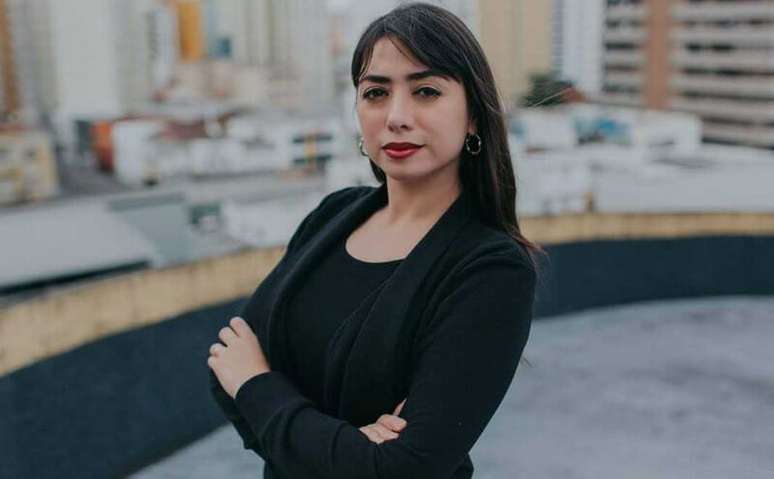Women working in the financial market are seeing progress, but there is still a long way to go
Being a woman in the financial sector means being in a minority. This scenario is visible in companies in the sector ― so much so that photos with almost only men in companies in the sector have begun to be criticized on social media, exposing the problem.
Some companies don’t wait for change to happen on their own, but are proactive: Nord Research, for example, has specific openings for women in some fields, such as bankers (professionals who help investors), said the founding partner of the house of research analysis, Marília Fontes.
“Diversity adds a lot to any business, as it allows for different perspectives on the same issue. The possibility of arriving at a good solution increases a lot,” she commented.
Marília has 14 years of experience in the financial market. But in her time in this field, she observes her progress: “Today we have many more women in the financial market in different areas. And I see more and more interest from young women in the market, ”she assesses.
html[data-range=”xlarge”] figure image img.img-4a39214118e38bc2fe95a2e8b78e37a3wz1sizrd { width: 774px; height: 479px; }HTML[data-range=”large”] figure image img.img-4a39214118e38bc2fe95a2e8b78e37a3wz1sizrd { width: 548px; height: 339px; }HTML[data-range=”small”] figure image img.img-4a39214118e38bc2fe95a2e8b78e37a3wz1sizrd, html[data-range=”medium”] figure image img.img-4a39214118e38bc2fe95a2e8b78e37a3wz1sizrd { width: 564px; height: 349px; }
The leadership mindset is changing, but there is still a long way to go
Annia Gastélum, Head of Marketing at fintech WEpayments, is an immigrant from Mexico and has been working in the financial sector since arriving in Brazil eight years ago. She says she has already felt undervalued for being a woman, as well as facing difficulties for being a foreigner.
“I was always the first or second foreigner hired. At one point I felt a lack of empathy with someone who has to speak and express themselves in a language that is not theirs. Sometimes it seemed to me that they didn’t take it seriously,” she said.
But only when there is diversity can there be change. Annia believes she has managed to collaborate in this sense: “I had the opportunity to build culture within the companies I worked for, fight for cultural diversity and put my Latin identity as an advantage in the projects I participated in”.
Annia also notes an increase in diversity: “The mindset of leadership is changing, who opens the door to diversity opens the door to qualified people within all ‘groups’ (gender, ethnicity, age group, etc.) that bring perspective. ideas, enriching any project. But we still have a long way to go and it will take some time.”
Women help elevate other women
Nicola Rawlinson, Macro Strategies team leader at JP Morgan Asset Management in London, notes that things are changing in her nearly 15 years in the industry. She explains that JP Morgan has initiatives to ensure that women have equal opportunities.
But the industry, in general, is still predominantly male, so you can see that in places. For example, Nicola attended an event in São Paulo as the only female speaker out of 11 people and commented that this still happens.
“It’s great to see women in the audience saying they’re glad to see women on stage and I feel like I’m helping raise the bar for them to see there’s a platform,” she said.
She also said that gender equality is a topic that interests her a lot and that she seeks to be a reference and support the younger women in her company to see their potential and achieve a prominent position.
The change will only happen with intentionality, evaluates the executive
The financial sector still has a discriminatory bias, explains Fernanda Ribeiro, co-founder of Conta Black: “Despite the evolutions and technological advances, there are still many discriminatory mechanisms behind the scenes. I can cite here the credit analysis model, the logic of large agencies, which still considers the customer’s past financial life to determine his risk of default, when he could look at it from a perspective that considers the future”.
Fernanda recalls that Conta Black was born from a situation like this (experienced by the founder, Sergio All), of being denied credit even when all the requisites were in order.
Speaking of the necessary changes in the sector, Fernanda Ribeiro emphasizes that companies must be active: “They can change intentionally. And I believe that there is intentionality only when there is clarity in the objectives to be achieved through targets, with realistic metrics and financial investments aimed at this intention ”, she said.
Regarding the still small presence of blacks in the market, Fernanda says she sees a transformation: “Every six months we hold a meeting with black professionals in the financial area precisely to act as a counterpoint to this perception, which is spreading throughout the market. We are outnumbered, yes, and for structural and access reasons. But we exist, and having a representation in these spaces is very important, above all so that the next generations, more and more, understand that these places are ‘possible’. It is a work of building this imaginary, in the short, medium and long term ”, she concluded.
Source: Terra
Ben Stock is a lifestyle journalist and author at Gossipify. He writes about topics such as health, wellness, travel, food and home decor. He provides practical advice and inspiration to improve well-being, keeps readers up to date with latest lifestyle news and trends, known for his engaging writing style, in-depth analysis and unique perspectives.







